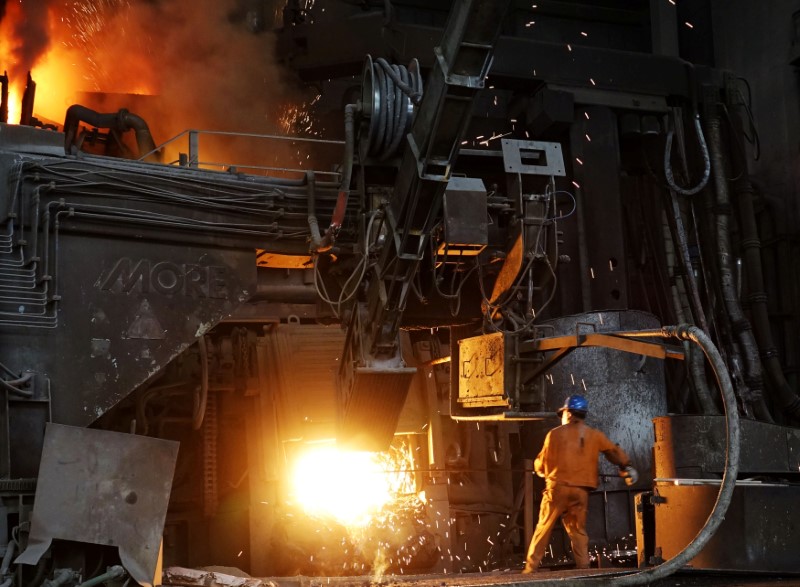Investing.com’s stocks of the week
BEIJING (Reuters) - China's manufacturing sector showed slower growth in the second quarter, a private survey showed on Wednesday, a worrisome trend that could add to pressure on China's economy just as trade tensions with the United States heat up.
After two years of solid growth, manufacturers are starting to show signs of weakness, according to the quarterly survey of thousands of Chinese firms by China Beige Book International (CBB), with companies reporting the lowest growth in new export orders since late 2016 in Q2.
"Manufacturing's challenge is not now, it's next year. Export orders slipped and a major escalation in the U.S.-China tariff war may be in the offing," CBB said.
If the trend persists for exporters, that will be bad news for Beijing, as there are also signs that growth in the domestic economy is moderating.
"A trade conflict with the U.S. would hit what is already metastasizing into a sore spot for the Chinese economy," CBB said.
China's industrial output, investment and retail sales all grew less than expected in May, suggesting further weakness ahead if Beijing perseveres with crackdowns on pollution, questionable local government spending and off-balance sheet "shadow" financing.
CBB's survey did show some bright spots for the economy, however. The retail sector, which had been called out for weak performance by CBB in recent quarters, posted growth in revenue, profits and investment in the second quarter.
CBB said that while China's oft-touted credit tightening and deleveraging campaign has helped control the riskiest forms of lending, Chinese firms borrowed the most in five years and interest rates were lower than a year ago.
"Firms are not struggling with deleveraging; Beijing has simply shifted them to a different teat, while further subsidizing their costs," said CBB.
Beijing surprised markets earlier this month when it did not follow a rate hike by the Federal Reserve, sparking concern regulators were worried about the health of the economy, and on Sunday the central bank cut the amount of cash some banks must hold as reserves in a bid to channel more funds towards struggling debt-ridden and small firms.
"Firms have yet to demonstrate they can withstand a higher cost of capital and Beijing's reluctance to try them, even amidst a strong economy, is telling," CBB said.
